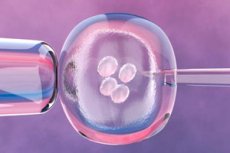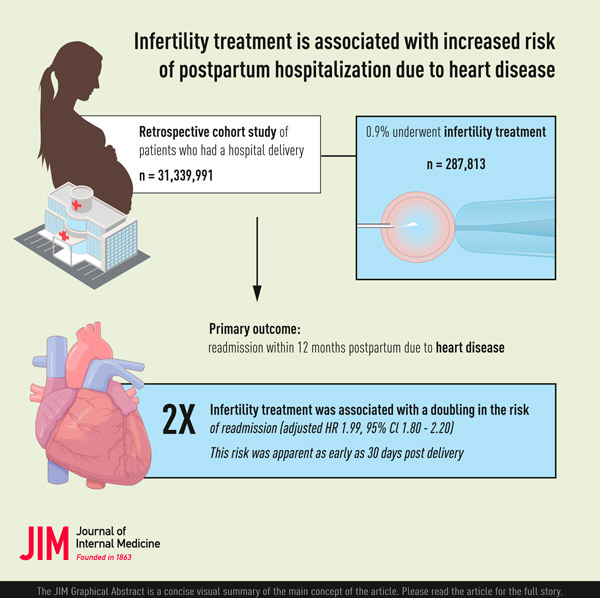Infertility Treatment Doubles Heart Disease Risk in postpartum period
最近審查:14.06.2024

A Rutgers Health study found that patients undergoing fertility treatment were twice as likely to be hospitalized for heart disease within a year of giving birth than those who conceived naturally.
Patients undergoing fertility treatment were particularly likely—2.16 times more likely than those who conceived naturally—to be admitted to the hospital with dangerously high blood pressure or hypertension.
"Postpartum checkups are necessary for all patients, but this study highlights their particular importance for patients who have undergone fertility treatments to achieve conception," said Rei Yamada, an obstetrics and gynecology resident at the University's Robert Wood Johnson Medical School. Rutgers and the lead author of the study.
The study authors say their findings support standards of care that now require an initial postpartum examination three weeks after birth, standards that some health systems have not yet adopted. Most of the increased risk occurred in the first month after birth, especially in patients who developed dangerously high blood pressure.
“And these findings are not the only ones that point to the need for early follow-up,” said Kande Anant, chief of epidemiology and biostatistics in the department of obstetrics, gynecology and reproductive sciences at Rutgers Robert Wood Johnson Medical School and senior author of the study. "Over the past few years, we have been involved in a series of studies that have identified significant risks of heart disease and stroke in various high-risk patient groups during the first 30 days after birth—risks that could be mitigated with early follow-up care."

Graphic summary. Source: Journal of Internal Medicine (2024). DOI: 10.1111/joim.13773
The study analyzed the Nationwide Readmissions Database, which contains nationally representative data on approximately 31 million hospital discharges and readmissions per year. The database contains diagnosis codes that allow researchers to find specific populations and identify reasons for readmission.
The researchers used data from more than 31 million patients who were discharged after childbirth from 2010 to 2018, including 287,813 patients undergoing fertility treatment.
Although fertility treatment predicted a sharp increase in the risk of heart disease, the study authors noted that the relatively young age of patients undergoing fertility treatment kept their overall risk quite low. A total of 550 out of every 100,000 women who received fertility treatment and 355 out of every 100,000 women who conceived naturally were hospitalized for cardiovascular disease within a year of giving birth.
The reason for the increased risk of heart disease associated with infertility treatment remains unclear. The increased risk of heart disease may be related to the fertility treatments themselves, to the underlying medical problems that made patients infertile, or to some other reason.
"In the future, I would like to see whether different types of fertility treatments and, importantly, medications are associated with different levels of risk," Yamada said. "Our data did not provide information about which patients received which treatment. More detailed information may also provide insight into how fertility treatments affect cardiovascular outcomes."
The work was published in the Journal of Internal Medicine.

